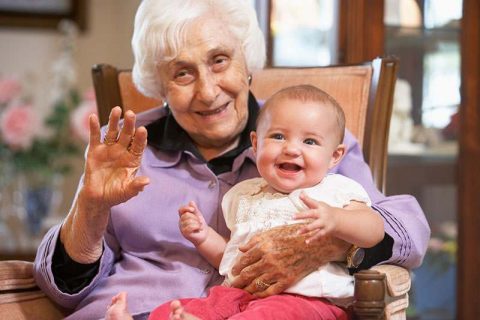August 13, 2021 by

Watch what occurs at your next family get together when a brand new mother places her baby in someone’s arms. The person will likely transition instantly into baby mode: a sing-song, high-pitched voice, overly-simplified speech, and exaggerated facial expressions. Of course, this is perfectly normal and actually good for a baby’s developing brain.
We hope, however, when that infant’s grandfather enters the room, family members refrain from reacting similarly. Yet it occurs so frequently, and can be so detrimental to seniors, that there is a term to describe it: elderspeak. Below we present examples of elderspeak and tips to speak more respectfully to seniors instead.
A recently available study by Susan Kemper, a professor who specializes in gerontology at the University of Kansas, paired senior listeners with younger speakers. In spite of the seniors’ instructions to simply listen without interrupting while the younger people spoke to them – thus leaving no hint to the speakers that they were having any challenges understanding what was being said – in a great majority of cases, the speakers resorted to elderspeak.
It is interesting to note as well that seniors consistently keep from using elderspeak with each other. Research has found that for many older adults, elderspeak conveys superiority and a cold attitude.
Why It’s Harmful
Simply put, elderspeak could be perceived as patronizing and belittling. It conveys feelings of inferiority and incompetency to seniors, rather than the admiration and respect they deserve. Although typically well-meaning and intended to convey endearment, it commonly has the reverse effect.
What to Do Instead
- Carefully consider how to address the seniors in your life. Many seniors find terms like “young lady,” “dearie,” or “honey” to be offensive.
- Use proper care when modifying the manner in which you talk to a senior loved one based on individual need. For instance, speaking slowly and clearly while facing an older adult with hearing loss is beneficial. A high-pitched voice, however, may actually further distort the words. A loved one with memory issues can better follow the conversation when it is broken down into simple, short sentences and yes-or-no questions. This can easily be accomplished without using baby talk.
- Keep in mind that there is no one-size-fits-all approach, as every person has unique preferences and challenges. An open and honest conversation with the person about how precisely they would like to be addressed and spoken to is the ideal path to ensure you’re engaging with them appropriately.
At Home Independent Living places a great focus on respectful interactions with every older adult in our care. Reach out to us for an in-home consultation to discover exactly how our caregivers can promote independence for seniors with personalized elder care in Syracuse, NY and the surrounding areas.
